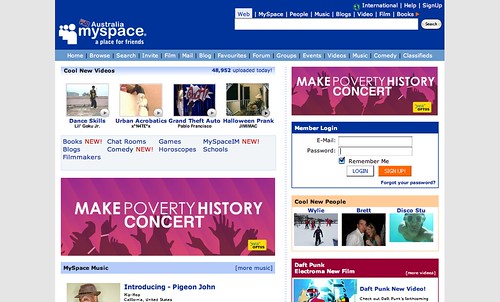
KMP Digitata recently asked the question “Why bother creating a branded social network?”
Why indeed Facebook and Twitter are where it’s at right? Why start a community from scratch, they are notoriously hard to get people to join, costly to build, and the day to day running of them is easily a full time job if they take off…with hard to measure ROI.
The article highlights the huge limitations to running a Facebook page if you’re a brand and ultimately it comes down to an issue of control.
Control you get in your own community
- Moderation: Only recently did Facebook add the keyword and profanity block list. It’s clunky though.
- Content Promotion: Newsfeeds and real-time web are all well and good content tagging and sticky posts features are brilliant for always relevant information
- Content usage: Content uploaded to your hosted community cannot be used by you, it belongs to the host or the user who uploaded it
Own communities which work
Here’s three communities which work better on their own and the reasons why.
- Doctors.net.uk: GMC registration details ensure this community remains verified medical professionals only and that sensitive information stays amongst those professionally and legally bound to protect it
- SavvyChavvy.com: a closed social network for young Gypsies and Travellers. This environment allows a marginalised group to communicate freely away from discrimination and prejudice they may face in the real world or on other social networks
- Ideastorm/MyStarbucksIdea: Submitting, voting for, tracking, and reporting back on these crowdsourced ideas over time wouldn’t work in the real-time environment of social networks built around news feeds where even popular content can drop into anonymity within hours
A final community consideration
Five years ago I was being asked by clients to create a MySpace strategy. Yikes, just imagine how they’d feel about that today if all their effort, content and fans (well, departing fans) were centred on that platform.
Your community strategy should be based on owning your content and conversation as much as possible and having a centralised benefit or HUB which you own and manage on the web. Whether that’s a blog on your website that feeds content out to Facebook and Twitter, or integrating community features into your own web presence.
Community strategy should be flexible enough to enable you to make the best of the social web for years to come – not just designed to jump on the latest platform.
[Image: ]




